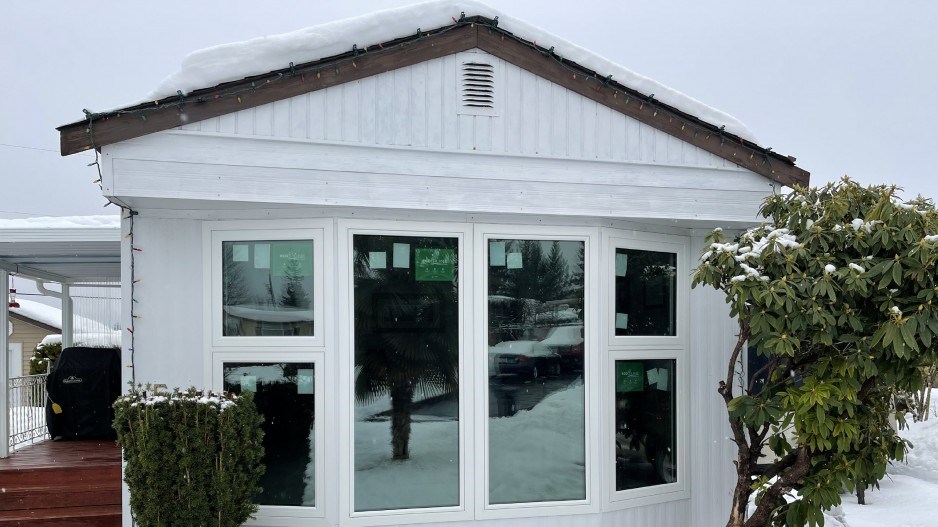The winter season can be taxing for windows in Canada, where extreme weather changes can greatly affect and even damage them. Luckily, winter is a good time to assess the durability of your windows and determine if it's time for a change.
Experts from Ecoline Windows Vancouver discuss 5 problems that could affect your windows in the winter, along with some solutions to help you deal with them.
Why might problems arise with your windows in winter?
The winter season is known to bring excess moisture and temperature fluctuations which can build pressure over time. This built-up pressure can seriously affect some window parts (more often glazing and frame), especially if your units are old and lack insulation and modern energy efficiency properties. With time, your windows might show signs or symptoms of the damage they take in during the winter.
Here are 5 common winter problems you might experience with your windows:
1. High energy bills
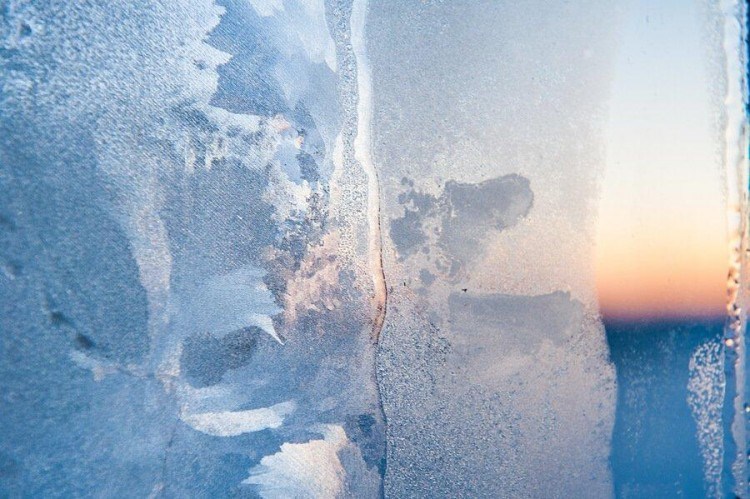
Photo via Ecoline Windows.
There could be serious implications for your energy bills if you've got a damaged window or a window with low-insulating features. This is because windows with poor insulating properties or damaged seals are prone to air leakages and cold drafts. With air leakages, your HVAC unit will have to do a lot more work to keep your room warm during the winter season, which results in a huge energy bill at the end of the month.
According to the National Resources of Canada, average households spent over $2102 on heating and cooling their homes in 2019. The heating bills make up 64% of the entire energy utility bill, which means $1345 was spent on heating alone.
With a damaged window, the price can go a lot higher, so it pays to spend a little more and get a double or triple-pane window with high energy-saving features.
2. Ice on windows
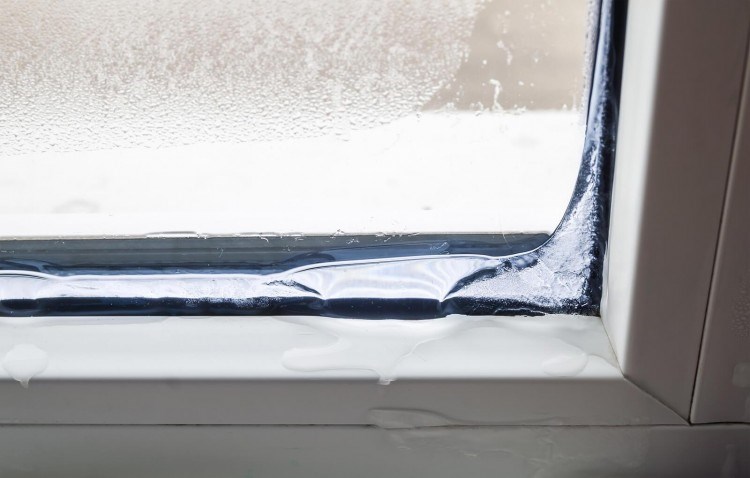
Photo via Ecoline Windows.
During the cold season, when the temperature outside is low and your windows are closed, the moisture remains inside your home and ultimately appears on the window pane.
When the surface temperature outside gets below the dew point, the water vapour transforms from a gas to a liquid. Because the outside temperature of the glass becomes colder and is then exposed to the warm moist air inside, it concentrates on the window pane, freezes, and builds ice crystals.
Over time, the ice build-up can cause the window glass to warp, leading to visible cracks or outright breakage.
If you happen to be using old single-pane windows, ensure you clean off the excess moisture that might build up on the window before it turns to ice.
For more insights on the proper ways to prevent and combat ice build-ups and moisture on your windows, download this expert window brochure from Ecoline Windows.
3. Condensation on windows
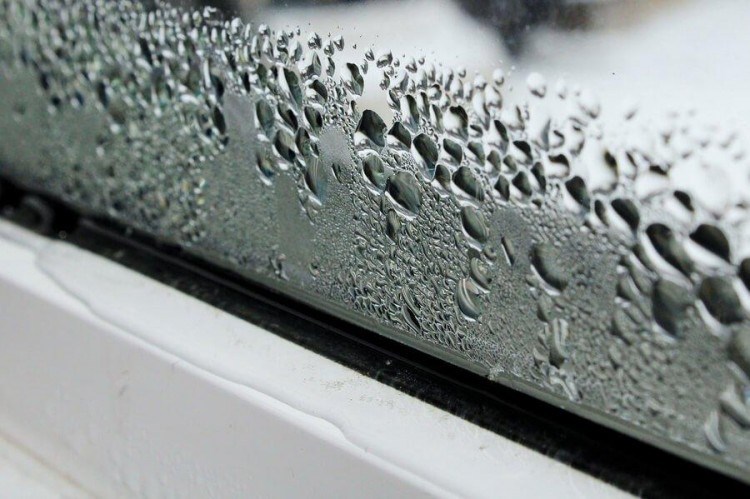
Photo via Ecoline Windows.
Caused by high humidity and visible on the inner, outer, or middle layers of your window glass, condensation can appear as slight frost or actually visible condensation.
You can combat condensation by using a dehumidifier indoors. Another solution is to switch on your ceiling fans, as the clockwise movement can redirect air movement toward the affected windows, clearing up the condensation in no time.
Condensation on the outside of window glasses is rare and often only occurs in summer or hot seasons. If the problem continues, you can opt for a plastic insulation kit for your windows.
4. Wood frame rot
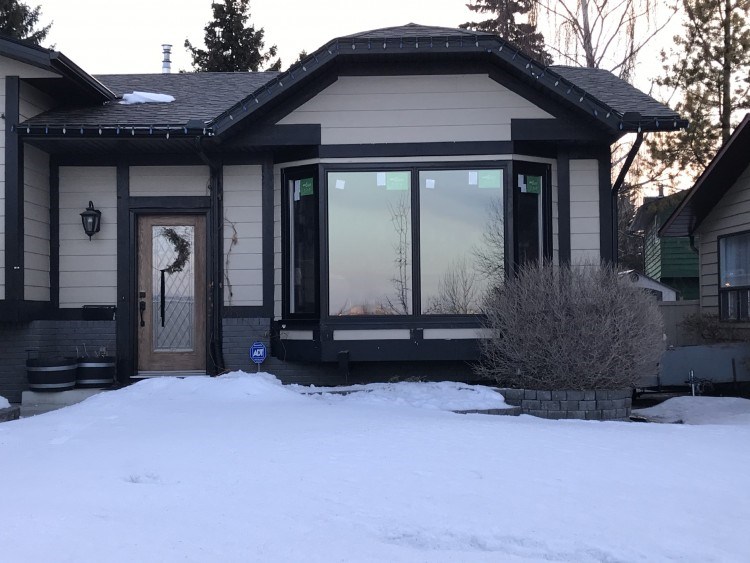
Photo via Ecoline Windows.
Wood frame rot is often a problem for old-style homes with old wooden-framed windows. Aside from warping, the contrast change in temperature can lead to a build-up of moisture. If left untreated for some time, this can lead to damaged frames, resulting in your energy bills skyrocketing.
To prevent this, check and inspect your windows for any signs of rot before, during, and after the winter season. If you notice a build-up of moisture on your windows, ensure you get rid of it by wiping it down with a dry, soft cloth.
Window experts also recommend replacing your wood windows with modern Canadian vinyl windows for better durability. Double- or triple-paned models are up to 55% more energy efficient, come with better noise-cancelling properties, and can fit any house design.
5. Leaky windows and drafts
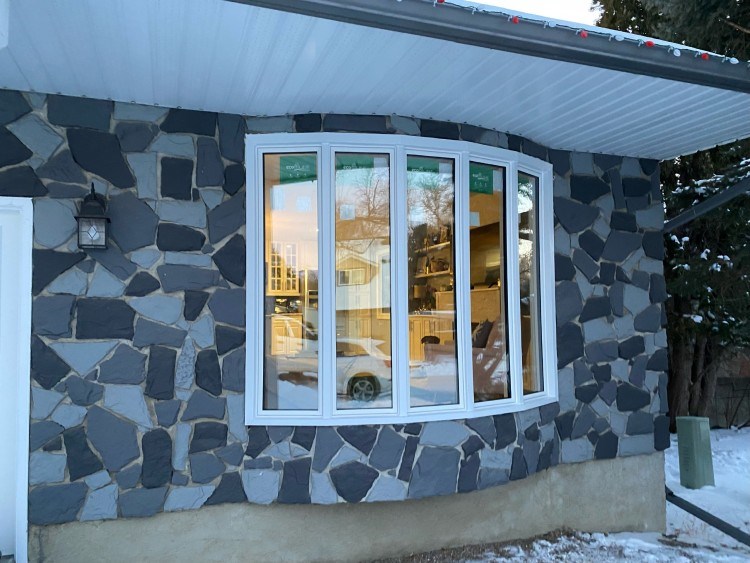
Photo via Ecoline Windows.
The main use of a window is to prevent elements from entering your house. If your windows show signs of cold drafts or air leakages, it is a clear indication that their seal features are worn out.
In that case, you can either replace the window with a better energy-efficient unit or work towards fixing the worn-out seals on the windows.
Here’s how you can combat window leaks:
- Check for damaged exterior caulking, and clean the window frame and recaulk;
- Inspect the sealing between the window frame and the glass. Re-seal the glass to the gasket with clear silicone caulk;
- Ensure the sill at the bottom of your window frame is pitched downward to drain water in the exterior direction;
- Remove dirt, debris and insects from weep holes in the frame bottom. Utilize a small wire to unplug these holes. That will make sure that any water that comes in through the screen drains to the outside.
By utilizing these solutions to address the problems that could plague your windows this winter season, you can significantly boost the thermal performance of your house and save money.
If your old windows are over-damaged, consider replacing them with a more durable, energy-efficient option before or during the winter season. New vinyl windows will ensure more comfort and peace of mind, saving you a lot more energy and money in the long run.
Planning a window replacement project? Reach out to Ecoline Windows Vancouver at 604.239.3094. Ecoline Windows is located at 1551 Broadway St, Unit 103 in Port Coquitlam, B.C.

